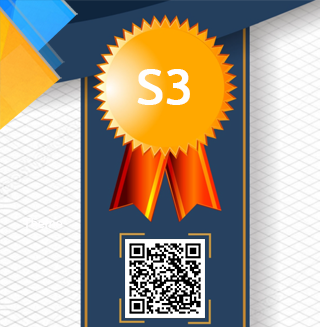Mendesain Intervensi Kesehatan dengan Memanfaatkan WhatsApp untuk Mencegah Stunting pada Balita Selama Masa Pandemi COVID-19
DOI:
https://doi.org/10.25311/keskom.Vol8.Iss3.1240Abstrak
Kasus stunting di Indonesia masih terbilang tinggi sehingga penyediaan informasi kesehatan secara lengkap untuk kesehatan balita sangat diperlukan terutama pada masa pandemi COVID-19. Oleh karena itu, penelitian ini bertujuan untuk mendesain layanan informasi kesehatan secara online dengan menggunakan WhatsApp untuk mencegah stunting pada balita di komunitas pedesaan. Penelitian ini merupakan action research dimana co-design methodology digunakan untuk merancang layanan informasi kesehatan tersebut. Penelitian ini melibatkan kader kesehatan, bidan, petugas gizi, dan perangkat desa dimana mereka diwawancarai dan mengikuti Focus Group Discussion (FGD). Selain itu, USE Questionnaire digunakan untuk mengukur efektivitas dari layanan informasi kesehatan yang telah dirancang. Hasil wawancara dan FGD menunjukkan bahwa masyarakat desa lebih mengenal penggunaan WhatsApp dibandingkan platform komunikasi online lainnya. Selain itu, selama pandemi COVID-19, banyak program kesehatan yang terhenti sehingga layanan informasi kesehatan online yang interaktif sangat diperlukan untuk mendukung keberlanjutan program kesehatan di komunitas pedesaan. Selanjutnya, hasil analisis dari USE Questionnaire menunjukkan bahwa rata-rata persentase dari aspek kegunaan, kemudahan penggunaan, kemudahan dalam mempelajari, dan kepuasan dari layanan informasi kesehatan online tersebut adalah 85,43%. Hal ini mengindikasikan bahwa program hot Line stunting (INSTING) yang merupakan layanan informasi kesehatan secara online sangat layak diterapkan bagi komunitas pedesaan dalam melakukan komunikasi terkait informasi kesehatan di masa pandemi COVID-19.
Unduhan
Referensi
Absori, A., Hartotok, H., Dimyati, K., Nugroho, H. S. W., Budiono, A. and Rizka, R. (2022) 'Public health-based policy on stunting prevention in Pati regency, Central Java, Indonesia', Open Access Macedonian Journal of Medical Sciences. 10(28), pp. 259–263. doi: 10.3889/oamjms.2022.8392.
Adekoya, C. O. and Fasae, J. K. (2022) 'Social media and the spread of COVID-19 infodemic', Global Knowledge, Memory and Communication. 71(3), pp. 105–120. doi: 10.1108/GKMC-11-2020-0165.
Agustina, D. N., Sartono, B. and Notodiputro, K. A. (2021) 'Analysis of multidimensional stunting intervention factor using mixed model', IOP Conference Series: Earth and Environmental Science. 948(012067), pp. 1–10. doi: 10.1088/1755-1315/948/1/012067.
Candriasih, P., Ndama, M. and Pont, A. V. (2021) 'Specific and sensitive nutrition interventions with nutritional status of toddlers as prevention of stunting in the coronavirus disease 2019 pandemic in Sigi district, Indonesia', Open Access Macedonian Journal of Medical Sciences. 9, pp. 415–418. doi: 10.3889/oamjms.2021.6148.
Cox, J. L., Seaman, C. E., Hyde, S., Freire, K. M. and Mansfield, J. (2022) 'Co-designing multidisciplinary telehealth education for online learning', Health Education. 122(2), pp. 164–179. doi: 10.1108/HE-10-2020-0098.
Cronje, J. C. and van Zyl, I. (2020) 'WhatsApp as a tool for building a learning community', The Electronic Journal of E-Learning. 20(3), pp. 296–312. doi: 10.21506/j.ponte.2018.1.36.
Ernawati, R., Rahman, F. F., Khoiroh, S., Rahmah, D., Milkhatum, Sulistiawan, J. and Moslehpour, M. (2021) 'The effectiveness of web-based audiovisual media applications in monitoring children’s growth to prevent stunting', Advances in Decision Sciences. 25(3), pp. 1–11.
Gall, M. D., Gall, J. P. and Borg, W. R. (1984) Educational Research: An Introduction (7th ed.). United Kingdom: Pearson Education, Inc. doi: 10.2307/3121583.
Gao, M., Kortum, P. and Oswald, F. (2018) 'Psychometric evaluation of the USE (usefulness, satisfaction, and ease of use) questionnaire for reliability and validity', in Proceedings of the Human Factors and Ergonomics Society, 3, pp. 1414–1418. doi: 10.1177/1541931218621322.
Hariyanto, D., Triyono, M. B. and Köhler, T. (2020) 'Usability evaluation of personalized adaptive e-learning system using USE questionnaire Didik Hariyanto Recommended citation : Usability evaluation of personalized adaptive e-learning system using USE questionnaire Didik Hariyanto * Thomas Köhler', Knowledge Management & E-Learning. 12(1), pp. 85–105.
Hijrawati, Usman, A. N., Syarif, S., Hadju, V., As’ad, S. and Baso, Y. S. (2021) 'Use of technology for monitoring the development of nutritional status 1000 hpk in stunting prevention in Indonesia', Gaceta Sanitaria. 35(2), pp. 231–234. doi: 10.1016/j.gaceta.2021.10.028.
Hussain, T., Jawed, N., Mughal, S. and Shafique, K. (2022) 'Public perception of isolation, quarantine, social distancing and community containment during COVID-19 pandemic', BMC Public Health. 22(1), pp. 1–9. doi: 10.1186/s12889-022-12970-y.
Jayanti, K. D. and Wibowo, A. (2017) 'Faktor yang memengaruhi kematian ibu (studi kasus di Kota Surabaya)', Jurnal Wiyata Penelitian Sains dan Kesehatan. 3(1), pp. 46–53.
Kementerian Kesehatan Republik Indonesia. (2016) 'Situasi balita pendek. ACM SIGAPL APL Quote Quad'. 29(2), pp. 63–76. doi: 10.1145/379277.312726.
Kementerian Kesehatan Republik Indonesia. (2019) Profil Kesehatan Indonesia. Jakarta: Kementerian Kesehatan RI. pusdatin.kemkes.go.id
Maisonah, M. (2020) 'Auto whatsapp sebagai alternatif layanan perpustakaan pada masa pandemi COVID-19 di IAIN Curup', Tik Ilmeu: Jurnal Ilmu Perpustakaan dan Informasi. 4(2), pp. 170 - 195. doi: 10.29240/tik.v4i2.1988.
Noorbergen, T. J., Adam, M. T. P., Teubner, T. and Collins, C. E. (2021) 'Using co-design in mobile health system development: A qualitative study with experts in co-design and mobile health system development', JMIR MHealth and UHealth. 9(11), pp. 1–16. doi: 10.2196/27896.
Nugroho, A., Warnars, H. L. H. S., Gaol, F. L. and Matsuo, T. (2022) 'Trend of Stunting Weight for Infants and Toddlers Using Decision Tree', IAENG International Journal of Applied Mathematics. 52(1).
Ravalier, J. M. (2022) 'Co-design , delivery , and evaluation of wellbeing initiatives for NHS staff : The HOW (healthier outcomes at work) NHS project', International Journal of Environmental Research and Public Health. 19(4646), pp. 1–15.
Ritzer, G. and Goodman, D. J. (2004) Teori Sosiologi Modern. Yogyakarta: Kreasi Wacana.
Unduhan
Telah diserahkan
diterima
Diterbitkan
Cara Mengutip
Terbitan
Bagian
Lisensi
Hak Cipta (c) 2022 Jurnal Kesehatan Komunitas

Artikel ini berlisensiCreative Commons Attribution-NonCommercial-ShareAlike 4.0 International License.




























